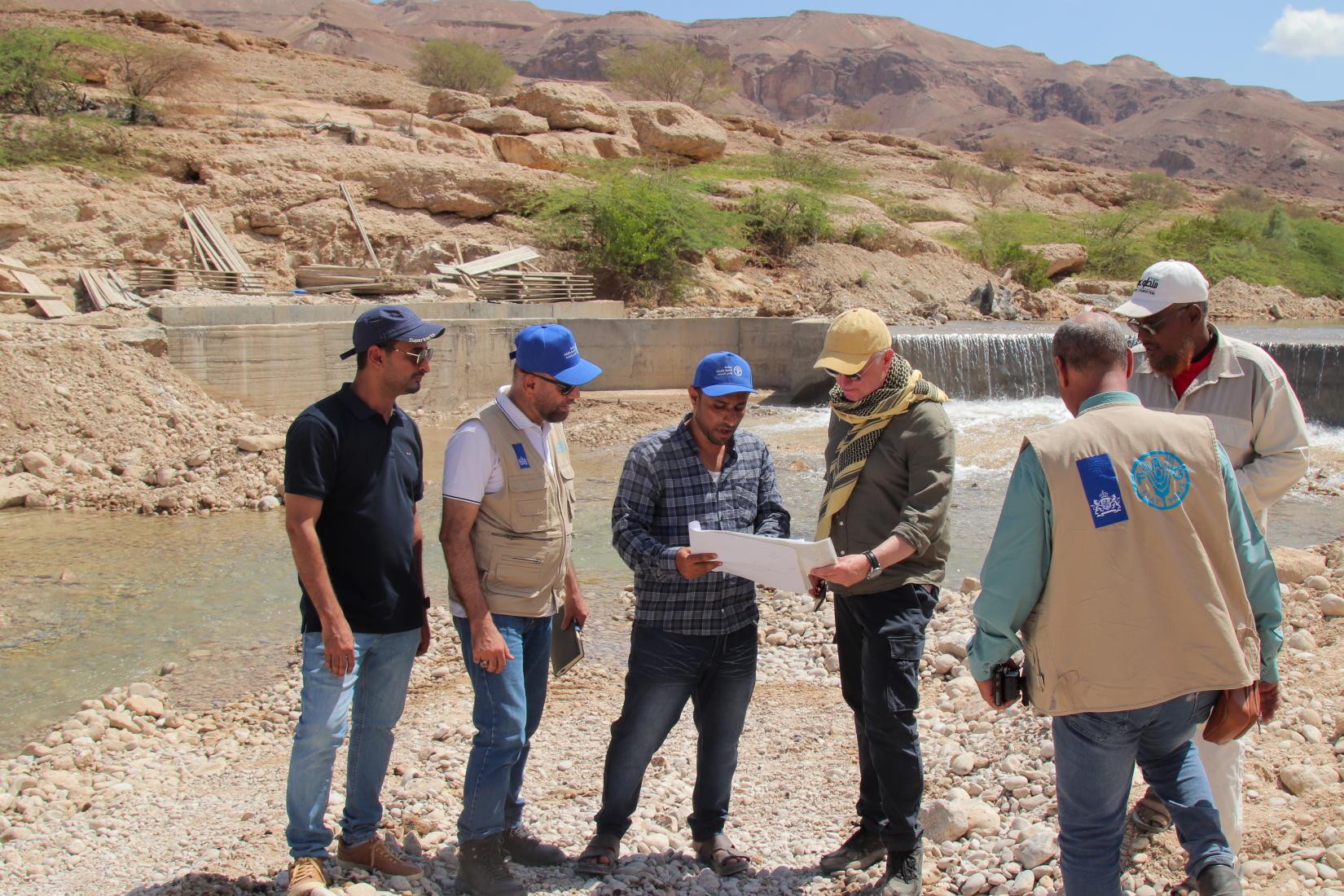FAO and the Netherlands Strengthen Partnership to Boost Agricultural Resilience in Hadramout
19 May 2025
---
Hadramout, Yemen – 19 May 2025
A Dutch Embassy delegation, led by Deputy Ambassador Ms. Marieke Wierda and Mr. Jan Peter, joined FAO for a week-long visit to Hadramout Governorate. The visit focused on the Dutch-funded, FAO-led Sustainable Watershed Management programme, which aims to improve water security through Integrated Water Resource Management and targeted watershed interventions. Officials from the Ministries of Agriculture and Water reviewed progress and impact of ongoing joint efforts.

Reviving Wadi Hajer: A Lifeline for Agriculture in Southern Yemen
Wadi Hajer, a key palm-growing and water-rich valley west of Mukalla, suffered years of irrigation neglect. With Dutch funding, FAO is restoring vital infrastructure to improve water access for farmers. The Netherlands and France also support broader efforts across the Wadi Hajer watershed—including Hajar, Maefa’a, and Broom—to enhance water security, climate resilience, and crop productivity for over 90,000 people. Interventions include flood protection, sustainable agriculture, cash-for-work, and support for women-led initiatives.
Dialogue with local authorities in Seiyun
In Seiyun, the team met Mr. Hisham Al-Saeidi, Assistant Deputy Governor, who outlined local priorities in water, agriculture, and food security, and expressed appreciation for FAO and Dutch support. FAO’s work includes desert locust and flood control, with the 2024 handover of the fully equipped Desert Locust Centre. Ms. Marieke Wierda highlighted the Netherlands’ strong partnership with Yemen, especially in cultural heritage and water, now expanding to Wadi Hajjar and Wadi Al-Ain. Dr. Hussein Gadain reaffirmed FAO’s commitment to sustainable agriculture and climate-resilient water management.

A shared commitment to sustainable development
Speaking on behalf of the Dutch government, Mr. Jan Peter emphasized the priority of job creation and long-term development in Yemen’s rural areas, especially for youth. He stressed the need for a holistic approach connecting agriculture, water, and livelihoods. The delegation also met with farmers and water user associations to hear success stories, gather feedback, and identify future needs.
Scaling Up for Greater Impact
Looking ahead, FAO and its partners plan to:
• Introduce high-efficiency irrigation across 1,000 hectares.
• Develop 160 greenhouses and 1,000 home gardens.
• Equip farmers with modern tools, training, and agricultural inputs.
“FAO’s water management work directly benefits over 55,000 people and indirectly reaches nearly 89,000,” said Dr. Hussein Gadain. “Wadi Hadramout has great potential—sustained investment is vital for Yemen’s recovery and resilience.” FAO and the Dutch government reaffirmed their joint commitment to rural transformation and long-term resilience in Yemen.




